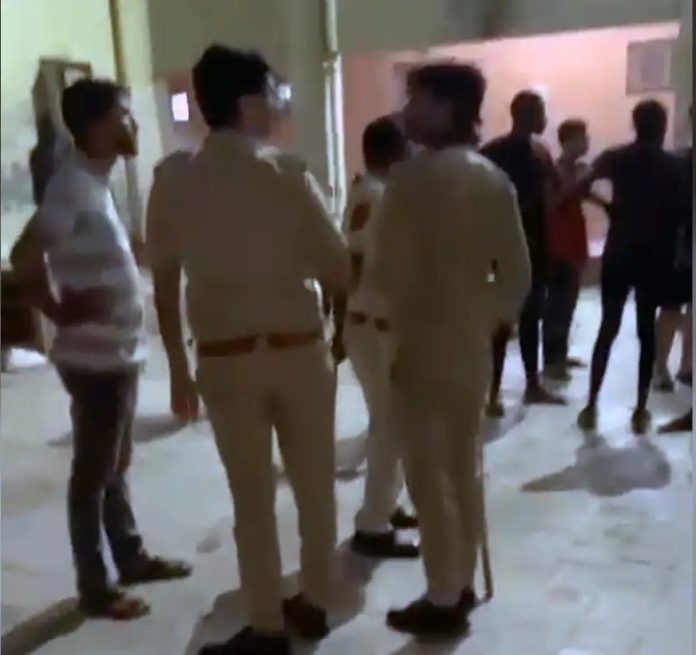– Shayma S
On 16th March, Gujarat University, a public state university in Ahmedabad, found itself in the news when a mob of outsiders attacked international students offering Taraweeh prayers. The mob, later identified as members of the Bajrang Dal, damaged their vehicles and threw stones at the students.
Videos from the scene show some men in saffron shawls chanting religious slogans and pelting stones and also pushing over the watchman who tried to stop them.

A student from Afghanistan, who was part of the group of students attacked, said that fifteen Muslim students were praying in A-Block, and the group of goons asked them to chant religious slogans and later came with more men who were armed with knives and sticks. For a full thread of the videos from the scene, please click here.
While Ahmedabad Police arrested two individuals in connection with the case, and the Ministry of External Affairs has said it is in touch with the Gujarat government, alarming news has come out that says that the University has planned “sensitivity drills” for foreign students. The Vice-Chancellor, Dr. Neerja Gupta, said: “These are foreign students, and when you go abroad, you must learn cultural sensitivity. These students need an orientation. We will sit with them, provide cultural orientation and discuss strengthening their security.”
In total, about 300 international students are enrolled in the University. International students studying in Gujarat are part of Indian Council for Cultural Relations (ICCR), which is under MEA.
Even the reaction of the state and union governments has been in part due to the pressures of international diplomacy rather than any genuine care for Muslim students on campuses. Since most universities and colleges lack any mosques or even shared spaces of worship and prayer, ad-hoc arrangements with the permission of the university or hostel administrations are generally made to accommodate such needs.
In this case, too, the University was well aware that the students generally offered Taraweeh prayers in A-Block, and as such, their protection was the responsibility of the University. Questions have been raised about how a group of unknown outsiders were allowed to enter the university premises and carry out this act.
Mainstream media has focused on the aspect of ‘namaz’ to make it appear that it was an illegal or even out-of-the-ordinary act. However, university spaces constitute spaces of interaction and learning where students are generally free to practice their faith as long as they do not disturb or offend others.




